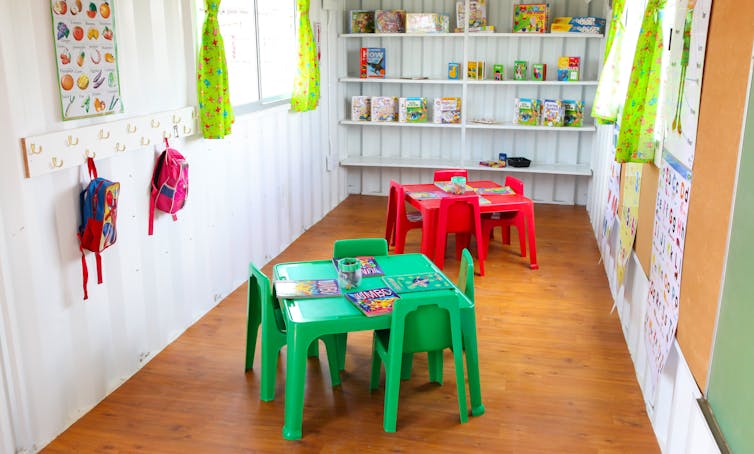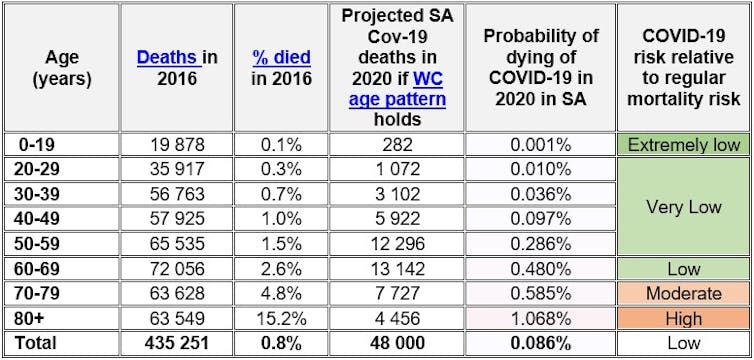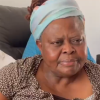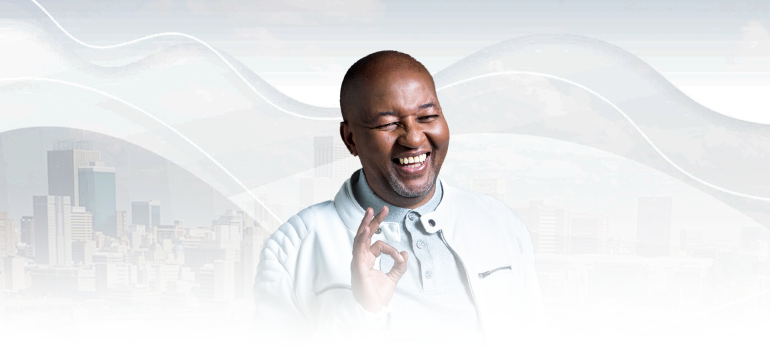-
play_arrow
On The Street On The Air | Kaya 959
COVID-19 school closures in South Africa and their impact on children
By: Servaas van der Berg, Stellenbosch University

When the new coronavirus rapidly spread across the globe, evidence of its effect on children was still scanty and closing schools seemed the responsible thing to do.
Now that there is more evidence, my colleague Nic Spaull and I have investigated whether the gradual reopening of schools in South Africa is in the best interest of children.
We drew from many data sources and paid greatest attention to the accumulating evidence on the age patterns of infection and mortality around the globe.
The mortality risk for children of opening schools is low
Using StatsSA data for 2016, “regular” mortality risk in South Africa ranges from a 1-in-1,000 chance of dying aged 0-19 to a 1-in-7 chance for those aged 80 and older.
The most pessimistic scenarios for deaths from COVID-19 range up to 48,000 in 2020, considerably fewer than the 435,000 annual deaths in South Africa from “regular” causes.
Applying the Western Cape province’s COVID-19 age fatality distribution, we projected COVID-19 mortality for 2020 by age under the most pessimistic scenario. The risk of death from COVID-19 in 2020 ranges from a 1-in-76,878 chance (0.001%) for children under 19 years old to a 1-in-94 chance for those aged 80 and older.

Provided by author.
Evidence from US schools and crèches that remained open during the lockdown for children of essential workers shows that infection rates of such children and teachers were not significantly higher than normal. Since our paper was written, both the American Association of Paediatricians and the South African Paediatric Associations have come out in strong support of reopening schools. The latter cites “mounting evidence” that transmission of the coronavirus by young children is uncommon, partly because they are less likely to contract it in the first place.
So after determining that the risks of schools reopening are extremely small for most children, it is worth considering the costs of continued closure of schools.
The costs of school closures
Even before the lockdown, 2.5-million children experienced hunger and almost a third of children who died were severely malnourished. Rapid surveys by StatsSA and the Human Sciences Research Council show increases in hunger since the lockdown, since many workers lost their income and children no longer received free school meals.
Recent international reviews show that lockdowns, school closures and natural disasters raise levels of substance abuse, depression, fear, loneliness, domestic violence and child abuse. Financial worries add stress to many households, raising levels of emotional exhaustion, depression and anxiety.
Recent surveys in many countries have shown that children are at higher risk of lasting psychological distress, including depression. For instance, after one month of school closures in Hubei – a province in Central China – a quarter of children between the ages of eight and 12 years old showed symptoms of depression.
By early August, South African children will have lost between 30 and 59 days of school, depending on their grade. It appears that many will attend only half the school days in the second half of the year because of how schools implement social distancing.
Teachers will not be able to complete the curriculum, leaving many gaps in children’s education. Poorer learners and schools are least able to catch up. International research shows that such learning losses could have lasting implications, even stretching into the labour market and affecting lifetime earnings.
Read more:
How to keep children learning at home. And you don’t need material resources
Re-opening the economy while schools remain closed increases the risk of children being left home alone. If all employed workers returned to work, more than 2 million children aged 0-15 years would be left without an older sibling (15 years+) or an adult caregiver.
Of greatest concern are that almost one million children (974,000) below age six have no other adult caregiver except a working parent. Thousands of these children could be left home alone if their employed caregiver was forced to return to work to sustain the family. Even though most sectors of the economy have re-opened, early crèches and day-care centres remain closed.
Going forward
Reviewing the data on class sizes in South Africa in conjunction with government regulations and the spatial realities of South African classrooms, it’s clear that at least half of South African learners will not be able to practise social distancing within a classroom.
Teaching big classes outdoors would be difficult even without weather considerations.
Given that COVID-19 mortality risk is very low compared to regular mortality risk, and virtually non-existent for children, the Department of Basic Education should acknowledge that it’s not feasible for most South African schools to practise social distancing within the classroom. But it should require mask-wearing for older children and social distancing on the playground.
It’s our view that we should no longer keep children out of school. The profound costs borne by children and families will be felt for at least the next 10 years.![]()
Servaas van der Berg, Professor of Economics and South African Research Chair in the Economics of Social Policy, Stellenbosch University
This article is republished from The Conversation under a Creative Commons license. Read the original article.
Written by: Natasha
COVID-19 School closures South Africa
Similar posts
-
MORE ARTICLES

Discussion: Would you date an adult still living with their parents?

Memorial and funeral service details of Peter Mashata announced

Here’s your chance to win up to R5 000 in cash, thanks to McDonald’s Nazo!

WATCH: Peter Mashata’s mom Rebecca pleads for justice

Mpho Popps sends love to his parents on 21st anniversary
-
QUICK LINKS
UpComing Shows

The Best T in the City
With T Bose
He has held it down in the world of mid-morning radio with the best music, riveting topics, brilliant mixes and interesting guests. Every weekday, The Best T proves why he is the BEST by connecting to you like only your bro or favourite uncle could. He lets his listeners dictate the songs they want to hear in the ever-popular Top 10 at 10, and his Three Teaspoons never run out. Catch The Best T in the City Mondays to Fridays from 09h00 to 12h00.
close
Feel Good
With Andy Maqondwana
Feel good about feeling good! That's exactly what The Feel-Good show is about. An escape from the negativity that surrounds us, indulging you in good feels. Pass it on to one and all. Spread the good feeling around Gauteng with Andy Maqondwana.
close
Kaya Biz
With Gugulethu Mfuphi
The world of business is simplified for you by Kaya Biz with Gugulethu Mfuphi. This fast-paced award-winning business show talks to the corporate giants as well as up and coming entrepreneurs about their wins and challenges. Gugulethu invites guests to offer their analyses of markets and economies, and also delves into issues of personal financial wellness. Kaya Biz airs Mondays to Thursdays 18h00 to 19h00.
close
Point of View
With Phemelo Motene
Point of View with Phemelo Motene delves into the day’s current affairs, touches on real issues that affect people’s daily lives and shares expert advice on questions posed by the audience. Mondays to Thursdays 20:00 to 22:00.
close
959 Music Weekdays
Kaya 959 Hits
Real. Familiar. Memorable. Kaya 959 brings you the music you know and love from our playlist. Uninterrupted. Thursdays 20h00 to 21h00
closeConnect with Kaya 959
DownLoad Our Mobile App
© 2024 Kaya 959 | On The Street On The Air











